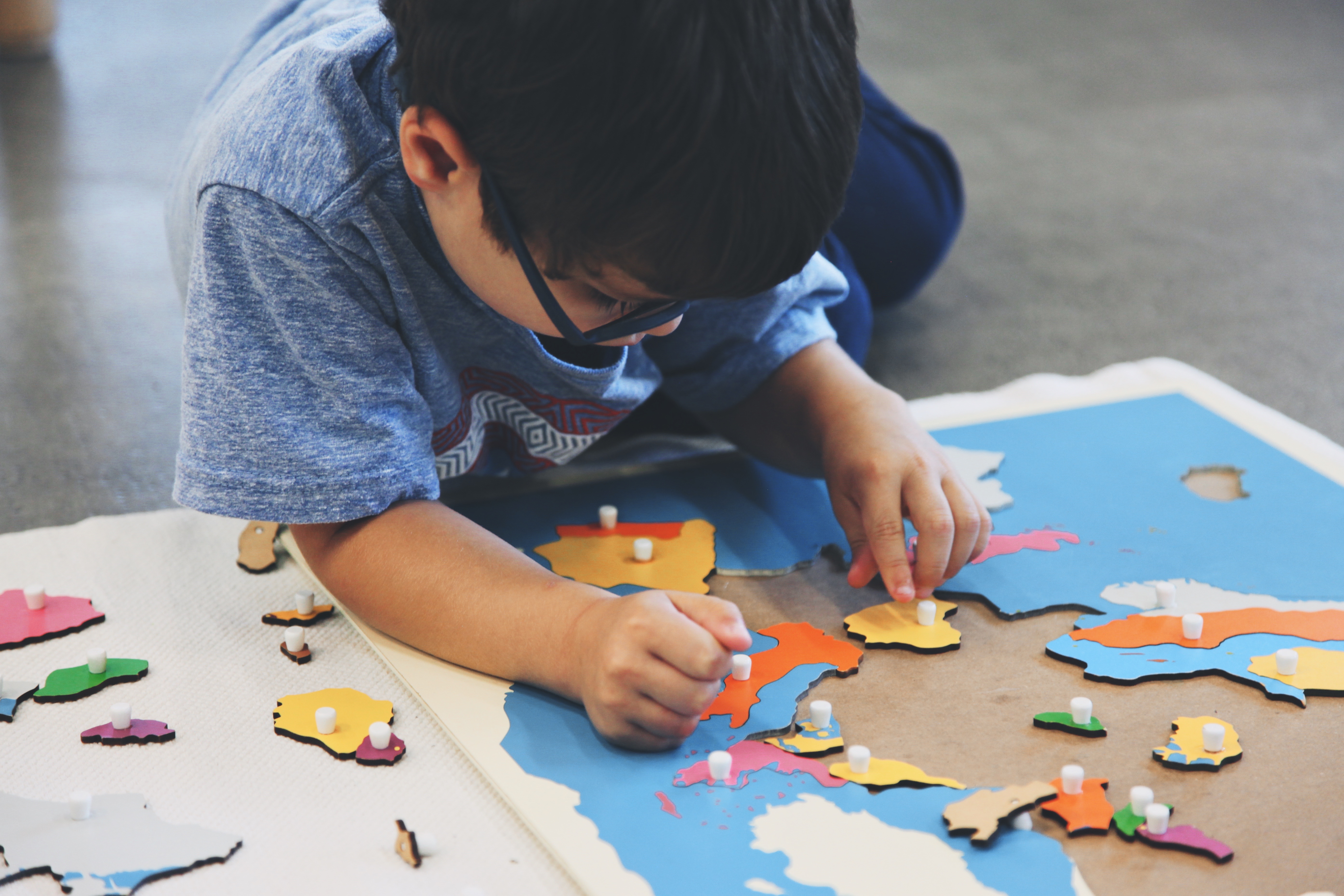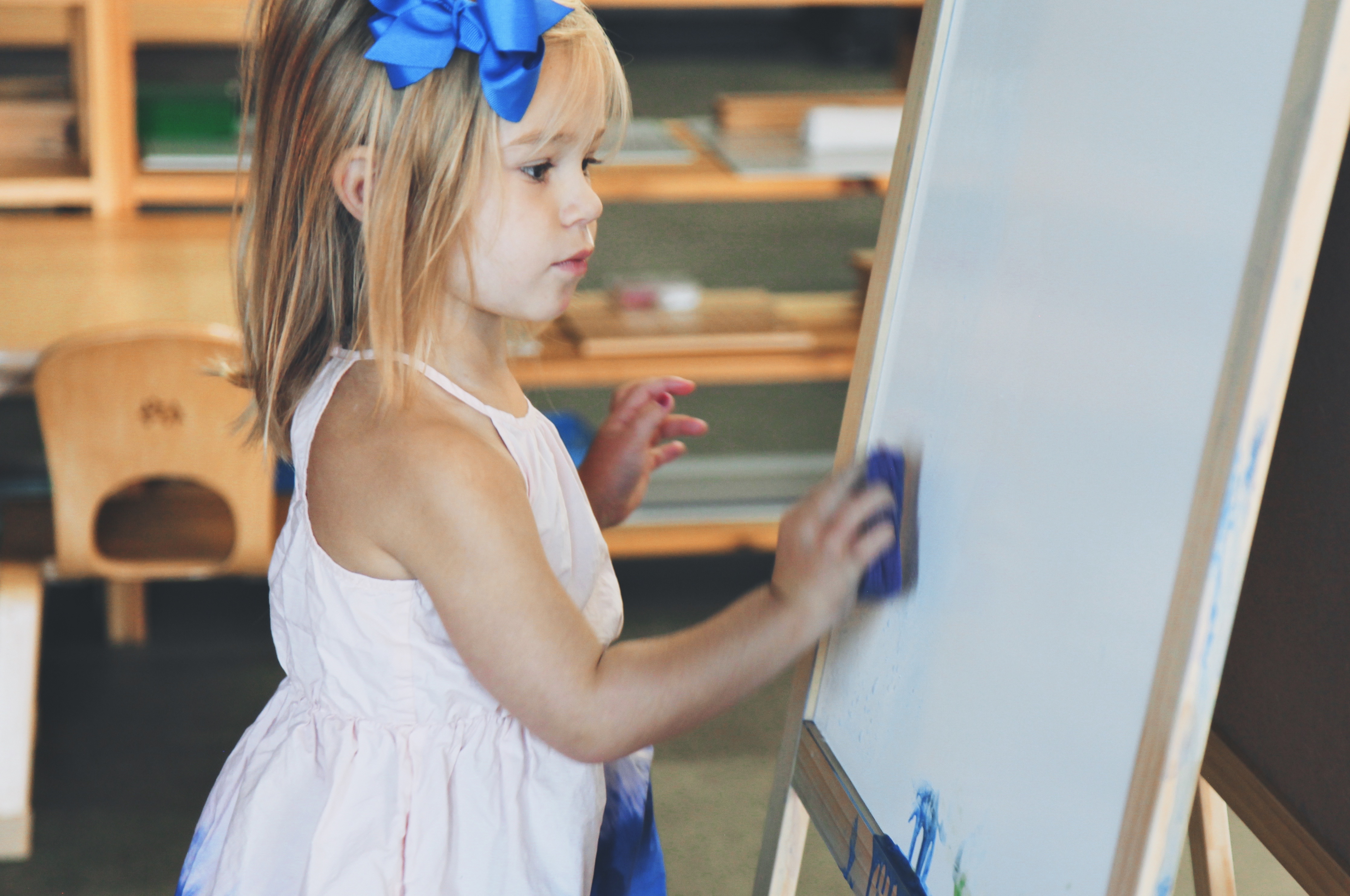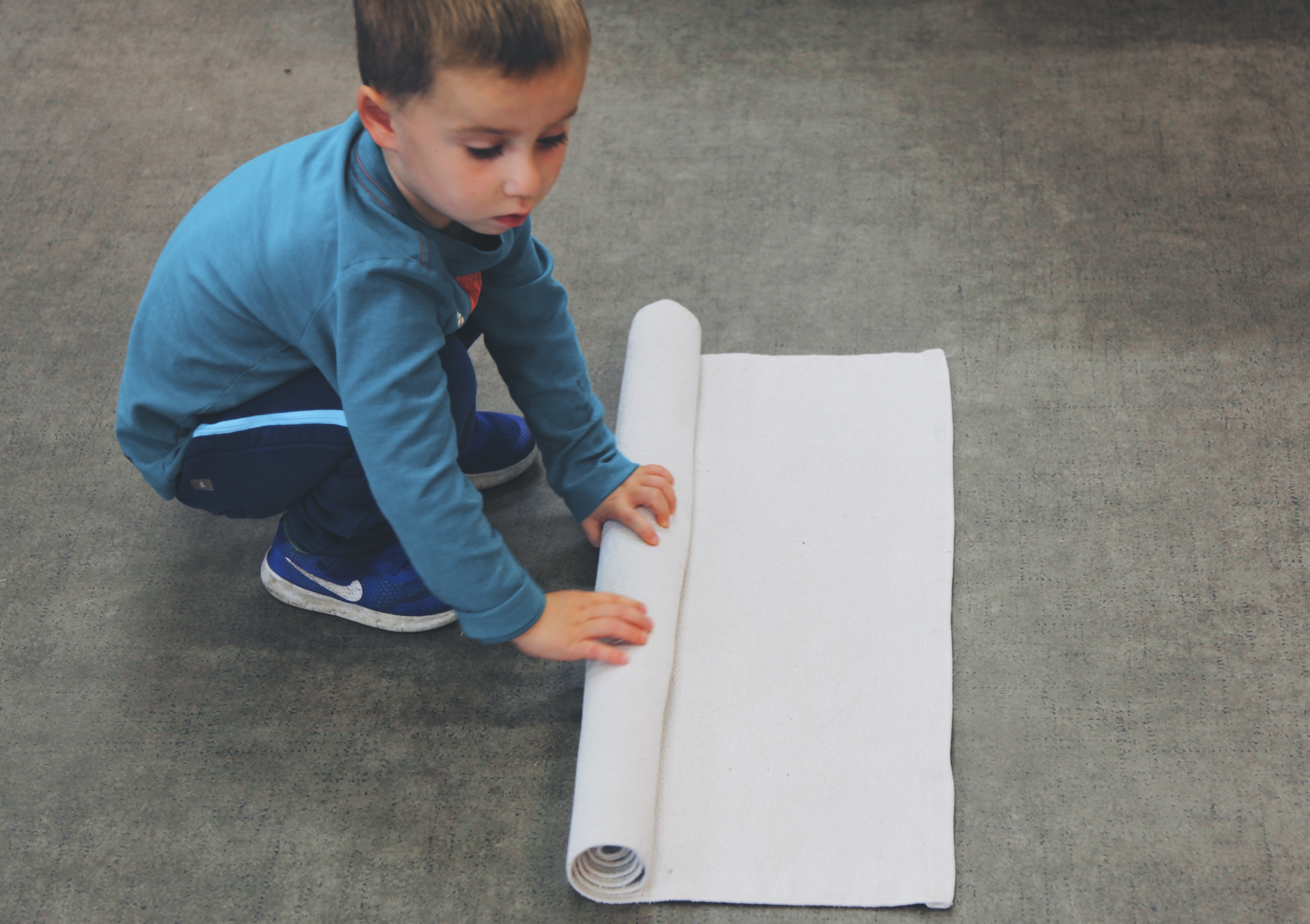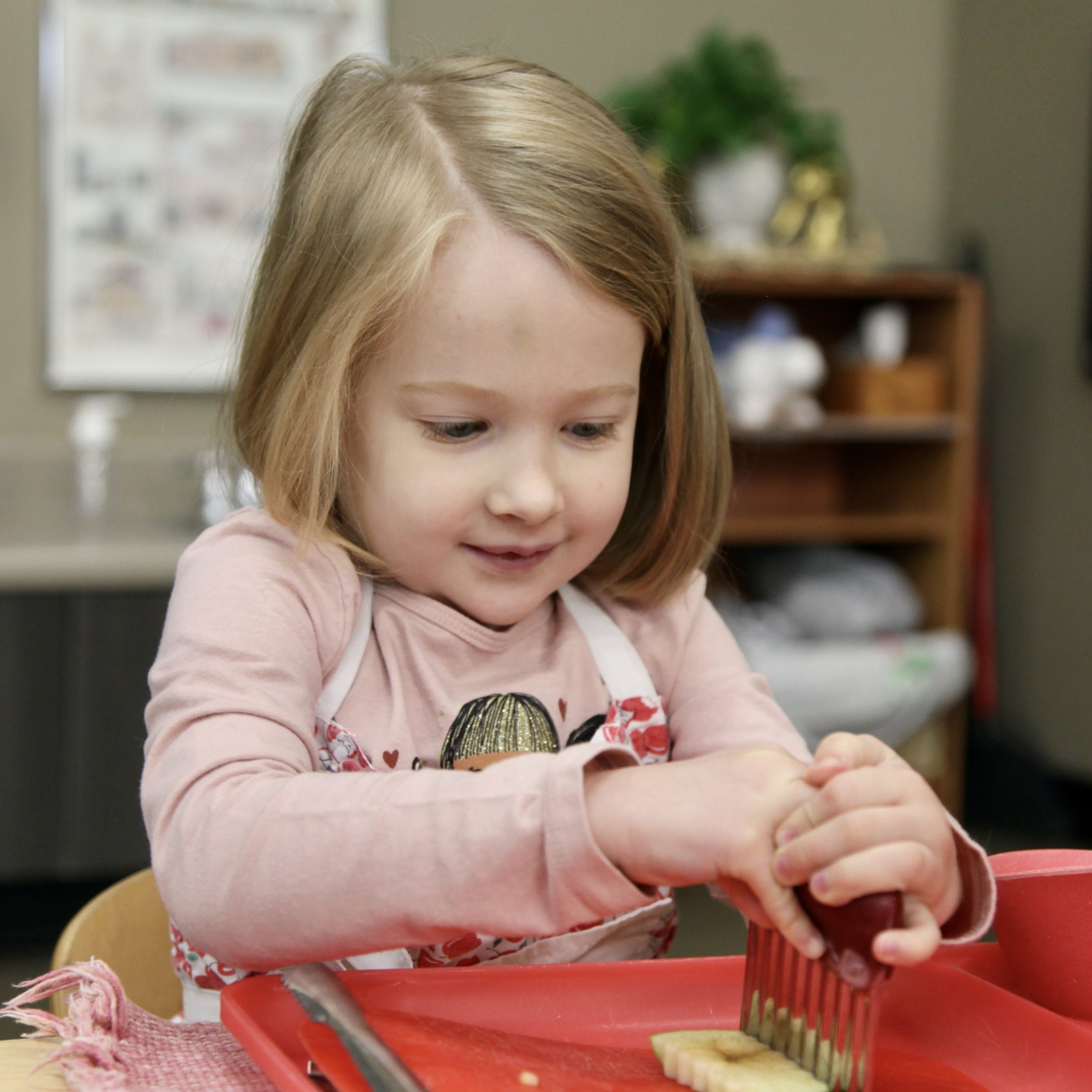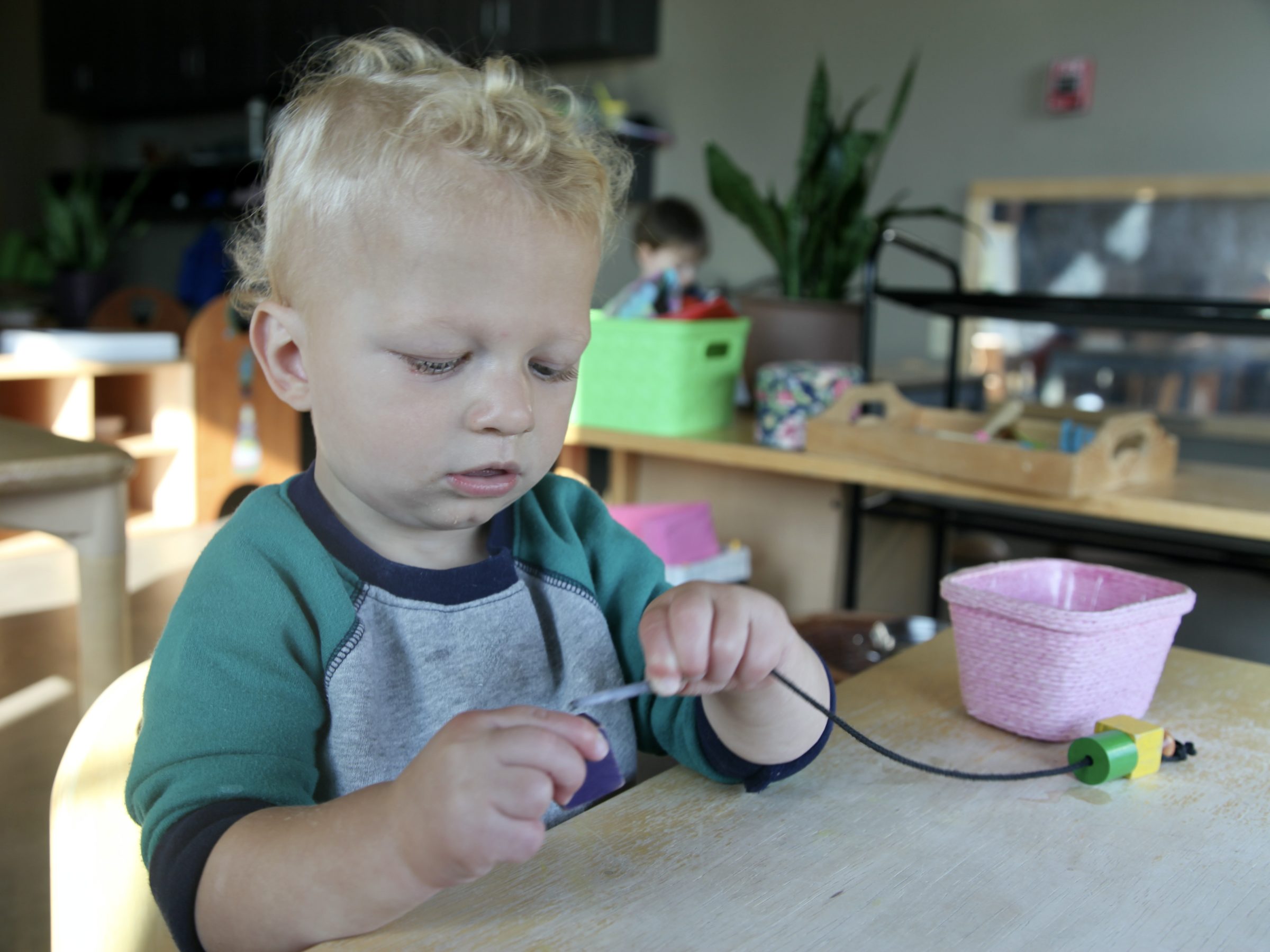All Day
Thoughts & Reflections
At some point, a decision comes up, of whether or not to have a child stay at school all day.
There are a variety of factors here. A child might be in care full-days from babyhood, due to a family’s work schedule. A parent or primary caregiver might have been home with a child from earliest days, and they’ve been at school for a while, and their teacher notices the child might be ready to stay full-day. Additionally, age is a factor, as children are required to stay full-day in AMI-recognized schools after four-and-a-half.
Whether this decision comes up when a child is starting school, or after they’ve been in school for some time, it’s a big choice. Let’s look into some of those factors here.
For some families, it simply makes sense. I go to work all day, and I need to work or I enjoy my work — both are good models for a young child to see — so it’s logical that a child would go to school full-day as well. We all pack up lunches, we all get ready for our day, we all go to our daily events, we’ll see each other again at the end of the day.
For some families, it might not be necessary, for instance if there is a nanny or a parent or a grandparent who can care for a child in the afternoon, but it is the best situation for the child. There certainly are benefits for a child in staying all day.
If staying full-day isn’t necessary, and if “all” a child does after the morning work cycle is finished is eat lunch and take a nap, examining these activities and the potential benefits becomes even more important.
We can speak to the full-day routine at Baan Dek, and though it is common to many Montessori schools, there are nuances, and each school is unique.
After the morning children get picked up, the children who stay full-day tidy and prepare the classroom for eating lunch together.
We often see a sense of pride in a child carrying in her lunch in the morning. It’s much like a briefcase, this is my responsibility, and I walk a bit taller and with a bit more grace. This can sometimes be a turning point for a child, I’m a Big Kid now.
“There are myriad ways children benefit from staying at school full-day”
There’s a lovely social experience during lunch. Absolutely, the Montessori classroom is a naturally social place, with the observation that’s available to children as a work choice, with asking for and offering help to one another rather than immediately seeking assistance from an adult, with the social negotiations and graces that come from independent work — walking around someone’s work, finding another choice when your first choice isn’t on the shelf, patience shared on both sides of a relationship.
In our culture, though, eating is a very social experience, and this is true in the classroom during lunch. The children bring tables together to eat as a community. A more experienced child is frequently paired with a less experienced child, and both benefit from helping one another. There is a lovely time to practice manners, and skills that are unique to eating. Would you please help me open my cheese stick? Excuse me, but I think your napkin is on the floor. We’ll sweep up the crumbs together.
There’s a wonderful opportunity to practice having conversations together. Conversations are a set of skills that need to be practiced like any other skill. You talk, then I respond with something appropriate to this topic. We take turns listening and sharing. Perhaps another classmate has something to contribute. We forget how much ebb and flow conversations require, how much nuance there is, how important it is to get to practice in a comfortable situation.
After lunch, the children tidy and get ready to go outside. This is such a joyful expression of independence! Children sweep during the work period as a gross motor exercise, to work on crossing the midline, simply to practice. After lunch, we have a practical application of sweeping! We have Dressing Frames to practice buttoning and zipping and buckling, and getting ready to go outside we surprise ourselves when we don’t need help with our coats, when our fingers know just what to do. The surprise, pride, and delight on a child’s face when they zip their coat independently is worth the price of admission.
In the afternoon, some children work, and other children have the work of resting their bodies. After such a big day — working all morning, eating lunch in a group, playing outside with others — a child who needs a nap is typically exhausted. They’re not the only one napping, they’re not alone in a room, they’re a napper or a worker, to each their own. Some children who put up a fuss napping at home are happy to lie down and rest their bodies at school. That peer pressure works wonders.
We round out the day together, tidying materials and our nap things, helping one another put shoes on or offering a drink of water or rolling all the rugs and straightening tables and chairs. This is My room, these are My people, and I have ownership here. I might straighten a puzzle, and think, I know this work! I know exactly how I’m going to start my day tomorrow. Caring for the classroom completes the circle.
There are myriad ways children benefit from staying at school full-day. There are also reasons a family might choose not to have a child stay at school full-day yet. Perhaps it makes more sense for a child to go home with a caregiver or parent. Perhaps there are other activities a family has chosen to have be a part of this child’s daily life. Perhaps staying full-day isn’t available, due to family schedules, school requirements, or finances. The point is, it’s a decision, and there are so many factors.
There is only one right choice — the choice that is best for each child, for each family. If parents feel unsure, a child will sense that, and it will likely affect their experience. If parents feel confident, a child will sense that, too. Whatever a family requires and chooses, this is what’s best for a child.
Written by:
Charlotte Snyder

